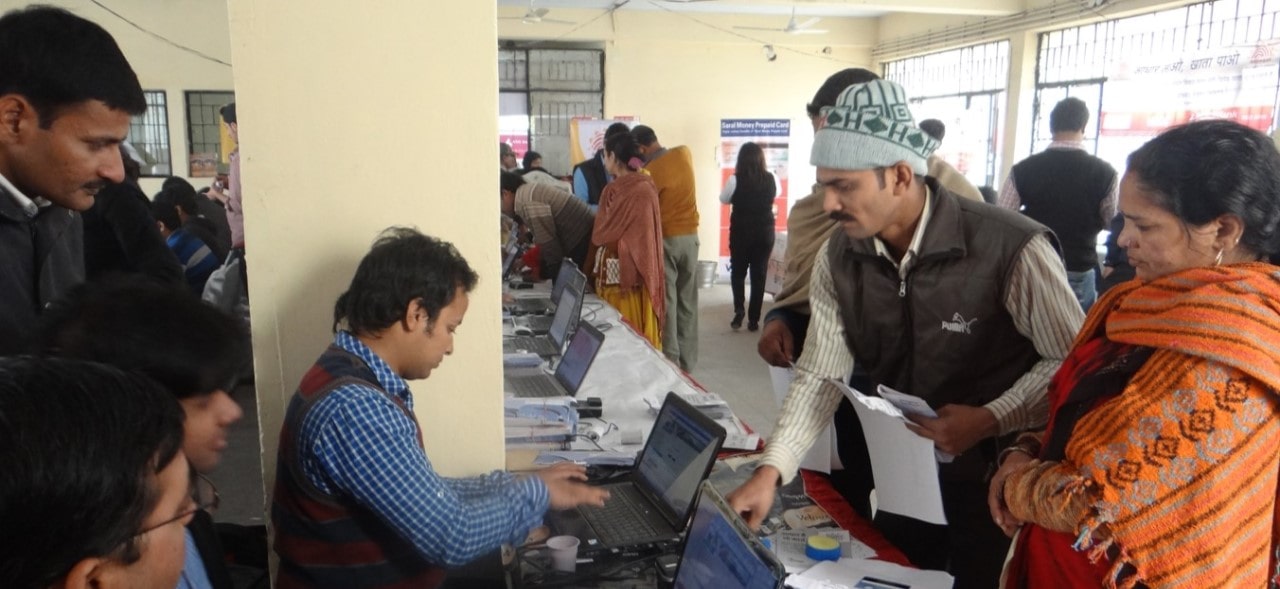
2018 – Ongoing…
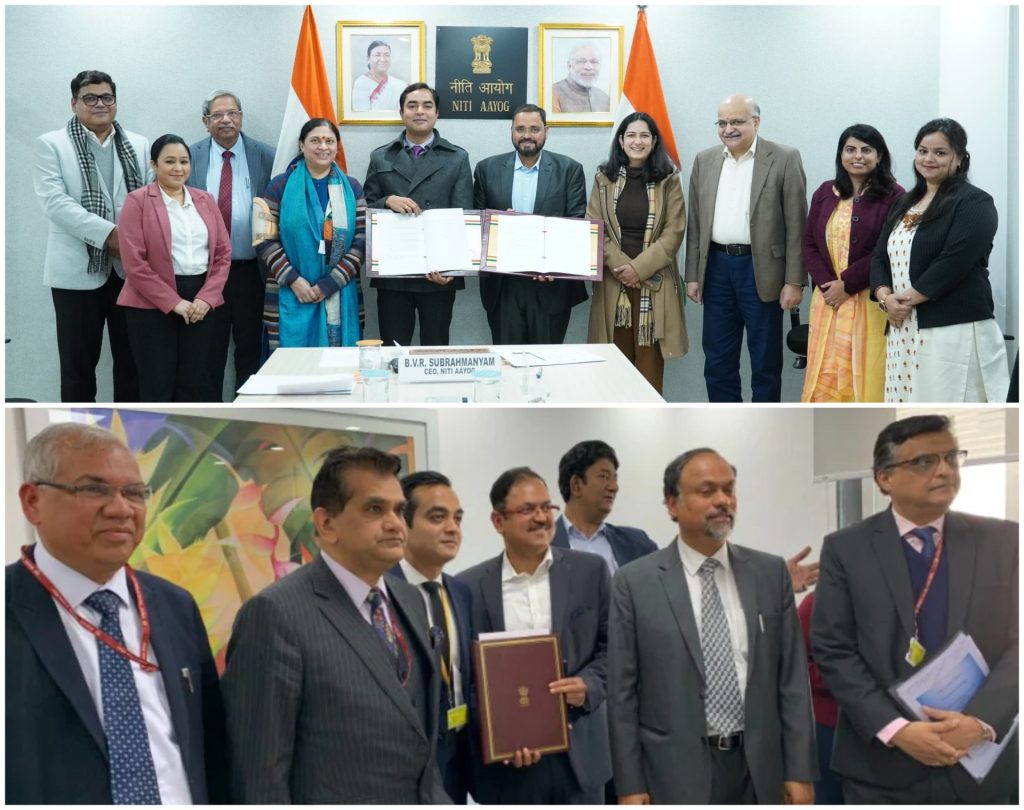 The usage and sustained adoption of financial products and services in India face considerable challenges and disparities. Women’s financial inclusion in India, in particular, lags because of the demand-side constraints, lack of focus on women’s needs, and the financial behavior of supply-side players. Since 2018, MSC has played a crucial role in strengthening financial ecosystems across 27 districts as part of PEFI.
The usage and sustained adoption of financial products and services in India face considerable challenges and disparities. Women’s financial inclusion in India, in particular, lags because of the demand-side constraints, lack of focus on women’s needs, and the financial behavior of supply-side players. Since 2018, MSC has played a crucial role in strengthening financial ecosystems across 27 districts as part of PEFI.
Lessons from the project have been scaled pan-India (TFIIP).
As part of our ongoing engagement in aspirational districts and blocks, we liaise with financial service providers and government stakeholders at the central, state, district, and block levels. We provide ground-up evidence to stakeholders on notable gaps in the use of financial services, support policy development, collaborate for capacity building of stakeholders, and cocreate and test innovative solutions to enhance financial service access and user experience among low- and moderate-income groups, especially Particularly Vulnerable Tribal Groups (PVTGs).
In the current phase of work, we focus on ways to increase the usage of financial products by women and men and address the challenges they face. Specifically, we will
- Reduce the exclusion and improve the use of financial services,
- Enhance adoption of digital financial services,
- Identify opportunities for innovative product development, and
- Improve user experience and quality of delivery of financial services for low- and moderate-income people.
Related documents
PEFI summary
TFIIP: From pilot to policy
The real story of women’s financial inclusion in India
Action research on digital capability
CICO Agent Lifecycle – Interactive Digital Flipbook
The six village story – India: An assessment of the real gap in financial inclusion
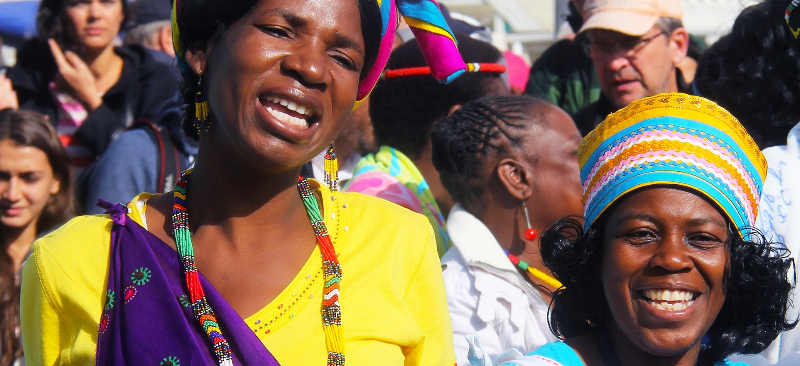
USAID commissioned MSC to provide technical assistance to refine and reposition the microinsurance product line of Britam, a financial services provider in eastern and southern Africa.
MSC conducted a situational analysis of microinsurance at Britam, deep-dive market diagnoses, and executed a concept distillation process. We revised the product and a strategic business case by pilot-testing and refining the products. As part of the assignment, we also drafted specific market and communication strategies, followed by an implementation framework.
Before MSC’s intervention, Britam had made recurring losses on its microinsurance portfolio. After our assistance, Britam achieved operational break-even in 2016 and made a small profit on the microinsurance portfolio. As of the end of 2017, Britam increased annual profits on its microinsurance portfolio to KES 79 million (USD 790,000). By the end of July, 2018, Britam had been serving over 550,000 low-income customers.
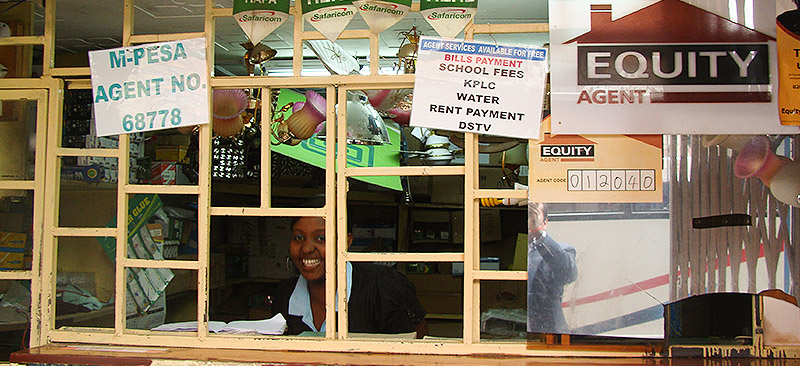
In 2001, Equity Building Society, Kenya, approached MSC to understand the reasons for the low uptake of their credit products. The resulting research, re-structuring of the products, and supply-side support put Equity on the path to transform into a bank. Equity was subsequently listed on the Nairobi Stock Exchange.
MSC supported Equity in strategy, product innovation and design, product marketing, digital transformation, costing and pricing, business process re-engineering, risk management, staff incentives, branding and corporate identity, and many other areas. From 2010, we also worked to build Equity’s model to deliver digital financial services. This involved agent network development and management, digital transformation, product-mix assessment, channel, and product differentiation, new product development, testing and roll-out, marketing and communication, customer service, and digital transformation.
MSC’s close collaboration with Equity Bank over the past two decades has helped the bank’s customer base to grow from 109,000 to over 12 million across six countries. Over 97% of Equity Bank Kenya’s transactions are conducted outside their branches, while customers initiate over 70% of transactions on their mobile phones. Today, Equity is the most respected mass-market bank in Africa.
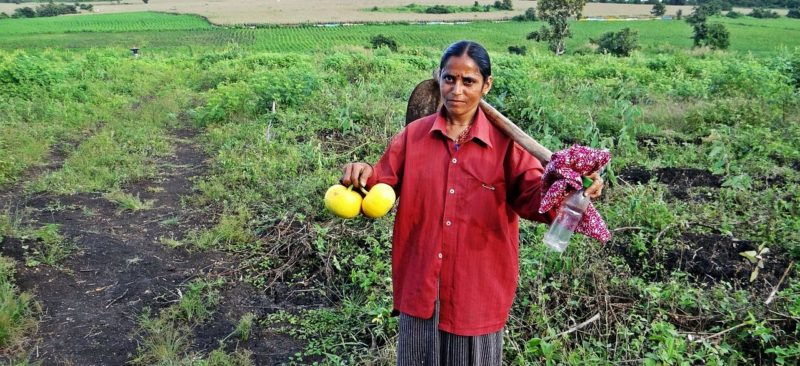
The Government of India launched the Electronic National Agriculture Market or eNAM platform to enable trading of primary agricultural produce. The platform connects 585 agricultural markets (or APMCs) through an online platform. MSC has been supporting the central and the provincial governments in design, policy reforms, and implementation of the eNAM program.
MSC undertook an extensive study of physical and electronic agricultural markets across multiple states and markets. MSC supported the government in the state of Uttar Pradesh to improve the functioning of eNAM across several APMCs. We worked with the government to implement our recommendations and to support operational and policy-level changes in the state.
MSC also created a blueprint to improve the design and implementation of electronic agricultural markets across India. Many of the design improvements were accepted and implemented. From 2016 to 2018, over 10 million farmers and 150,000 traders or commission agents had registered on the eNAM platform across India. The cumulative volume of electronic trade on eNAM had crossed about INR 482 billion (USD 6.5 billion) by September, 2018.

MSC provided technical assistance support to design and test a digital financial services ecosystem to digitize coffee value chains in Uganda. We conducted the project for MM4P, MTN, and Kyagalanyi Coffee Ltd. Kyagalanyi is one of the leading coffee factories in Uganda that deals with coffee purchasing, processing, and export. MSC, together with Kyagalanyi, MTN and other stakeholders digitized the coffee value chain payments for over 75% of their farmers.
As part of the project, MSC developed a bulk payments toolkit that helped different stakeholders in a range of agricultural value chains to plan and implement bulk payment digitization. The successful design and implementation of this project helped MM4P, MTN, and Yo! Uganda develop a strategy to digitize various agro-value chains, such as seed oil, tea, dairy, and maize, among others, in the country.
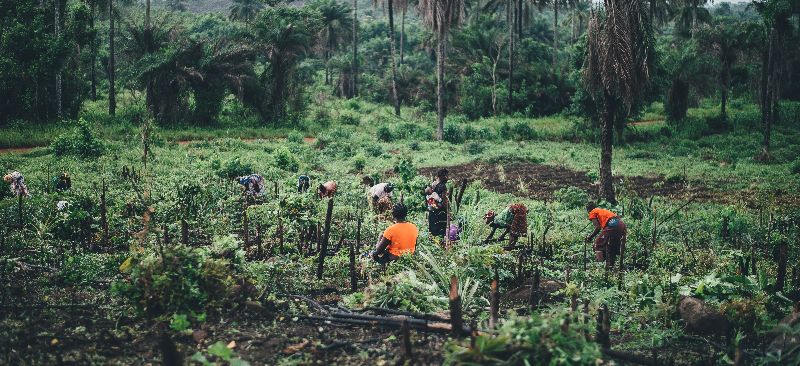
MSC and Cordaid Netherlands won a USD 1-million grant from the EU Microfinance Program and the Secretariat of the Africa, Caribbean and Pacific Group of States (ACP-EU) to work with banks and MFIs. MSC collaborated with Cordaid to provide technical assistance to seven MFIs in Africa. The collaboration developed agricultural finance products to improve access to financing among farming households. We helped the MFIs conduct market research, develop strategies, analyze value chains, develop credit products, and establish linkages to agricultural service providers.
MSC was tasked to design, develop, and pilot-test agriculture finance loans in four countries in Africa. We worked with seven financial institutions to understand the needs of farmers and the financing gaps, which resulted in the design of seven credit products.
MSC’s efforts facilitated a total of USD 3 million in commercial funding to about 500,000 smallholder farmers across coffee, sugar cane, maize, livestock, and dairy value chains. The intervention enabled the MFIs to disburse USD 3 million to smallholder farmers, ultimately reaching 1.3 million smallholder farmers. The overall ACP-EU program phase I had an impact on 52 of 79 ACP member countries and facilitated access to finance for more than 5.5 million financially under-served people.
 The usage and sustained adoption of financial products and services in India face considerable challenges and disparities. Women’s financial inclusion in India, in particular, lags because of the demand-side constraints, lack of focus on women’s needs, and the financial behavior of supply-side players. Since 2018, MSC has played a crucial role in strengthening financial ecosystems across 27 districts as part of PEFI.
The usage and sustained adoption of financial products and services in India face considerable challenges and disparities. Women’s financial inclusion in India, in particular, lags because of the demand-side constraints, lack of focus on women’s needs, and the financial behavior of supply-side players. Since 2018, MSC has played a crucial role in strengthening financial ecosystems across 27 districts as part of PEFI.




